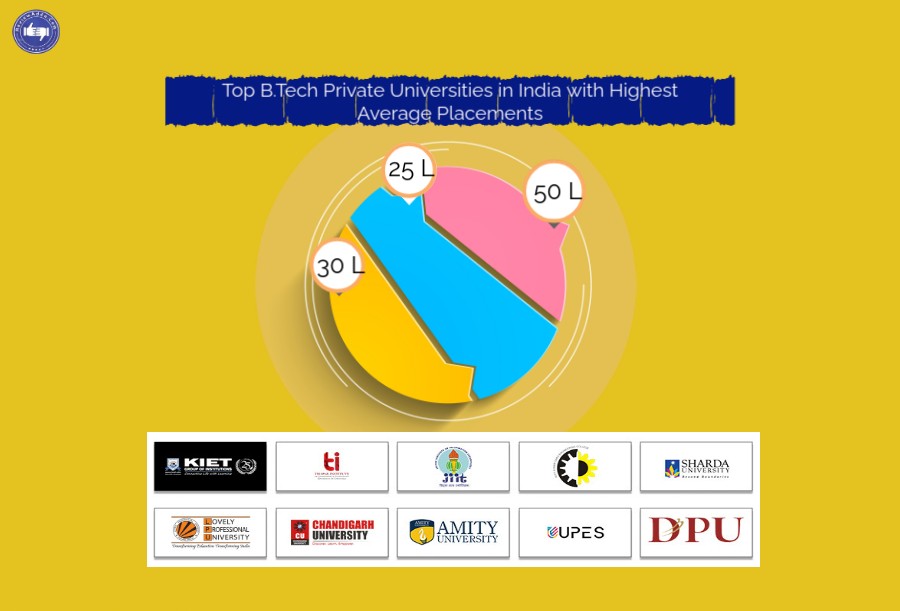Topic We Cover: 11 critical questions to ask yourself before joining any online program
Q1: Will this course help me in my career?
Q2: Do you have access to the right technology?
Q3: How do you learn best?
Q4: Are you self-motivated?
Q5: Can you succeed without being on campus?
Q6: Are you disciplined?
Q7: What type of technology is required?
Q8: Will you speak up?
Q9: Who are the other people in the program?
Q10: What value does it offer?
Q11: How is this distinct from other online programs I have followed?
Today, we cross a distance of miles and miles in a matter of hours through airplanes and ships - and there are hot meals and refreshments to keep us company. However, it is very obvious that you wouldn’t want to? y 18 hours to attend just a 30-minute business lunch. For nearly the same reason, you wouldn’t want to spend 3 -4 years earning a degree at an expensive institute on the other side of the country if your goal was just to get a promotion at work.

Whether you want to learn something completely new or need to expand your knowledge and skills, you can always sign up for an Online Course. Enrolling yourself in an Online Course is always a bright idea. An online course offers an opportunity to learn anywhere, at any time. Watching TV in the middle of the night, enjoying coffee in the lounge on a beautiful sunny day, or merely sitting ideal, Online Learning is most attractive because of the flexibility and convenience it comes with. Moreover, the majority of online courses are very helpful as well as inexpensive. However not all Online Learning Institutes are treated equally and the same.
Therefore, when signing up for a particular Online Course you need to be extremely careful. We have piled up a few questions for you that probably in your mind before signing up for an Online Course.
11 critical questions to ask yourself before joining any online program
Before you jump into any Degree Program, it’s vitally important that you ask yourself the right questions. Here are seven questions to consider before enrolling in an Online Degree Program. Answer them honestly and make the right choice.
Q1: Will this course help me in my career?
Unscrupulous providers, keen to get your credit card number, will undoubtedly respond with a resounding yes. However, this may be disingenuous. In order to get the answer to this question properly, you must first be clear about your own learning objectives. If you don’t know why you are signing up for a course you should stop and pause. If you are about to invest an additional 4-6 hours a week on top of already busy sporting activities, professional and family life, and/or other hobbies, you should first be very focused on what you want to learn from this experience.
In Online Course, the first thing you will be asked on your application form, and the first interaction you have with your coach will be around your specific aims and objectives. This will be the frame through which you will basically decide if your course has generated a strong personal ROI and allowed a meaningful impact. If you’re not clear on where you’re going, you’re unlikely to get there. Beware of providers who simply sell you a course. Embrace learning partners who engage you in a discussion about what you need to accomplish.\
Q2: Do you have access to the right technology?
The real deal-breaker when it comes to Online Education is technology. You simply can’t get your education online without Internet access. Fortunately, computers are less expensive than ever before and free Wi-Fi is popping up all over the place. Be sure you can get online before you even think about enrolling, and when you do enroll, check each college’s tech requirements. If you don’t meet them, don’t give up; ask about technology scholarships.
Q3: How do you learn best?
Make sure you understand how you are going to learn study and complete assignments and tests. Online institutes integrate many different academic models such as Traditional College Courses, competency-based programs, and Combined Online Programs.
Many people learn better listening to an instructor (auditory learner), some would rather see information (visual learner) and some prefer to do it themselves (kinesthetic learner). Students who learn well by listening and seeing often thrive in online learning environments, where they can listen to instructors with audio/video tools or see and experience presentations. Even those who learn by doing and interacting do well in Online Programs with hands-on elements.
Who would like to study from a non-experienced and unprofessional instructor? Of course, you wouldn’t! You are spending your hard-earned money to learn something, not to trash it. Thus it is intensely essential that the particular faculty is experienced and knows the ins and outs of the course.
An experienced teacher is extremely essential for an online class, but so as the structure of the course. A maximum number of Online Classes follow a specific type of structure for each program keeping each detail in mind. It is always recommended to ask easy about the overall structure of the course and how the classes will be organized every week.
 Get Updated Review ( Voice Based Alumni Feeback)
Get Updated Review ( Voice Based Alumni Feeback)
-
 Check Review (Alumni Feedback) - Lovely Professional University - [LPU] – Click Here
Check Review (Alumni Feedback) - Lovely Professional University - [LPU] – Click Here -
 Check Review (Alumni Feedback) - Amity University – Click Here
Check Review (Alumni Feedback) - Amity University – Click Here -
 Check Review (Alumni Feedback) - Pacific University – Click Here
Check Review (Alumni Feedback) - Pacific University – Click Here -
 Check Review (Alumni Feedback) - DIT University Dehradoon – Click Here
Check Review (Alumni Feedback) - DIT University Dehradoon – Click Here -
 Check Review (Alumni Feedback) - Graphic Era University – Click Here
Check Review (Alumni Feedback) - Graphic Era University – Click Here
Q4: Are you self-motivated?
Because you aren’t in a classroom seeing your professor and your fellow students, you need to stay focused in an online class. If you are good at keeping yourself on task, an Online Degree Program that allows you to work at your own pace could be a great choice. If this isn’t your strength, consider group-learning Online Programs with virtual classmates to help keep you on track, blended on-campus/online programs or even a fully campus-based program if being there is what keeps you going.
Q5: Can you succeed without being on campus?
The only big dissimilarity between online and offline courses is that you don’t actually get to sit in a classroom with a real instructor. In Online Courses, you get to learn from a virtual instructor, which may make you feel a little uncertain when it comes to looking for support. For their students, these online courses usually offer around-the-clock support. However, it is always better to ask earlier joining the class whether or not you would get abundant support.
Not every Online Institute is accredited equally. While going for a particular institute, the accreditation concern should be on top of your priority. Accreditation assures that institutes have met the highest standards in reference to staff, programs, and courses.
Colleges can have a special feel to them. Everyone there is there to learn. It can be eloquent in a way that no home office, coffee shop, or bedroom ever will be. It can also be more expensive and a lot further away than any of those places. If you are willing to trade the social interaction and college feel of being on campus for the freedom to make your classroom anywhere, Distance Learning may be for you. Outside of the virtual classroom, you can also always interact with other students, too.
Q6: Are you disciplined?
It’s just as dif?cult to stay disciplined as it is to stay motivated. Online Classes aren’t easier than traditional classes -- just more convenient. If you need a live professor to give you mean looks when you miss assignments, you may opt for a Traditional Program. If you work better alone (or you work better with others in an online setting), you may and that going to school online is exactly what you’ve been waiting for.
Q7: What type of technology is required?
Online Learning means you would need a working computer and broadband/Wi-Fi. Apart from that, you may need additional software to complete your assignments and notes. Since these extra things add up a lot to the actual costs, it is always recommended to consider them beforehand and plan the rest of the budget accordingly. Ask about the technology the program makes use of. You will not only need time to get the software in your system, but also install, and understand it.
You won’t need a degree in computer science to take full advantage of online schooling, but you will need to be able to use word processors, web browsers, video players, and many other programs with some speed. If you can’t type that quickly yet, consider starting with a typing class. If you don’t want to learn how to type, consider inventing the time machine -- even campus-based universities will require you to type up your work.
Q8: Will you speak up?
In Online Classes, it’s much easier to remain silent than it is when the professor is looking right at you. Ask yourself if you’re really willing to ask questions when you don’t understand, answer them when you do, and speak up when the time’s right. Many people who have issues with this kind of thing face-to-face? and that the online environment makes them much more comfortable when it’s time to participate.
Q9: Who are the other people in the program?
Any Online Course worth it's salt will involve regular communication with other members of your companion in a number of combinations. Full companion interaction, typically via a discussion forum, will be specifically useful to acknowledge you to share best practice in exchange with others and to gain encouragement that you are not the only person in the world undergoing this specific issue! Communication in the group (ideally five to eight participants) will enable you to form stronger connections with a subset of the larger cohort and will lead to robust discussion, debates around contradictory viewpoints, and an opportunity to jointly apply concepts and frameworks to a particular business conundrum.
An adroit instructional designer will have set up exercises that particularly focus on providing you with opportunities to acquire familiarity with a set of business tools. In an aspect, it is not the answer that matters but rather the favorable circumstances to bend your cerebral muscles and gain practice with a tool that you will afterward apply to your own business arena. Pair working allows a deeper connection with one other individual and leads to revelation – the ability to feel appropriate sharing intimate details around a business challenge you face, leading to personalized feedback and new awareness gained from a fresh pair of eyes.
Of course, all of the above can only reach their maximum potential if the other participants have significant and relevant experiences to share. For participating in an Online Programme if the only criteria are internet access and acceptable bandwidth, be prepared for average interaction and off-the-cuff questionable “advice”, which may resemble the blind leading the blind. If you are not particularly asked genuine what experience you will be bringing to the party, best steer clear.
Q10: What value does it offer?
Every course has a certain value attached to it. No matter what your plans are in regards to the course, it should have a value. After all, who would desire to misuse their hard-earned wealth into something that doesn’t have any value? As a situation, if you are a beginner SEO freelancer who hasn’t gotten any jobs, you will rather advantage from “learning the ins and outs of SEO” than “how to add plugins in WordPress?” Know what you need right at this moment. You are not only paying to acquire information on something new but also to achieve results from that knowledge.
Q11: How is this distinct from other online programs I have followed?
It’s highly likely to happen if you are going through this article, that you have already had some kind of online learning experience, ranging from a dreadfully boring health and safety compliance training (aka death by PowerPoint), giving prominence to a tedious voiceover of written text and intelligently arguable multiple choice quizzes, to an engaging life-changing learning experience that kept your inspiration high and led you to gladly sacrifice more time to stay the course.
What makes the difference? It is basically a combination of three factors: production values; program content and design; delivery mechanisms.
Online learning is no different – well-produced, well-designed, and well-delivered learning experiences can be spotted a mile off. Ask in advance to see the program roadmap, an overview of the activities you will be an attempt, snippets of videos, examples of articles, and access to the platform that will be used throughout the program. if the content is not built on solid research and development or if you are primarily treated to classroom footage, If the way ahead is not crystal clear, talking heads and static slides you may want to run for the hills.
If on the other hand, you feel like you’ve been immersed in an informative, rigorous, and engaging YouTube movie trailer that is relevant to your challenges and piques your curiosity to know more, you’re probably in safe hands.





.jpg)
